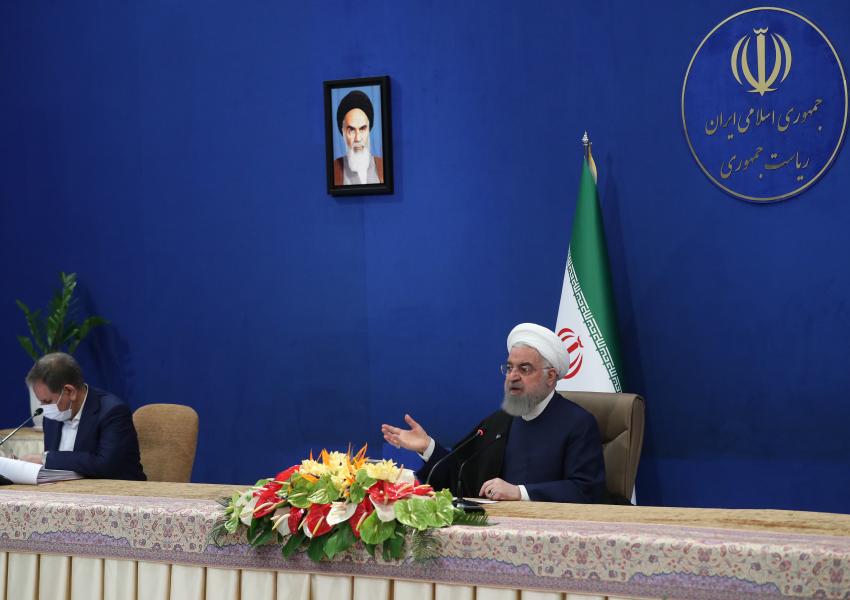
Rouhani Again Backs Referendums For Iran To Settle Contentious Issues
President Hassan Rouhani has reiterated that referendums are the best way to overcome disputes and achieve reforms in Iran. In his televised speech to the cabinet on Wednesday [March 31], a day ahead of the anniversary of April 1979 (Farvardin 12 in the Iranian calendar) referendum backing an Islamic republic, Rouhani highlighted the provision for referendums in Article 59 of the constitution.
"We have always needed to repeat [the referendum] of Farvardin 12," said Rouhani, whose domestic reforms and moves to resolve the nuclear standoff with the United States have been strongly opposed. "Whatever people chose will be fortunate."
Rouhani said he had considered the option for years and concluded that referendums could resolve many issues: "Albeit our country is not like Switzerland where a referendum will be held if 100,000 people sign a petition."
An overwhelming majority of Iranians voted in the referendum of Farvardin 12, in 1979 when offered a simple choice of voting for or against an Islamic republic. A second referendum was held in December 1979 to endorse a draft constitution. The March poll yielded a 98.2 percent ‘yes’ vote and the December poll 99.5 percent.
According to Article 59 of the Iranian constitution "in extremely important economic, political, social, and cultural matters, the function of the legislature may be exercised through direct recourse to popular vote through a referendum," once the proposal for a plebiscite is backed by two-thirds of parliament members.
Rouhani’s attraction to referendums is not shared by everyone. In February 2019 Abbasali Kadkhodai, spokesman of the constitutional watchdog Guardian Council, said the president was "mistaken" about the constitution and called his suggestion "inexpert."
Referring to June’s upcoming presidential elections, Rouhani, who after two consecutive terms cannot run himself, said "people's choice" should not be feared. "We must accept this, and if we get it into our heads that whoever is chosen by the people, from any faction or with any kind of thinking, it will be [a] fortunate [choice]," he insisted, emphasizing the value of a high turnout.
Calls for referendums have also come from Iran's Nobel Peace Laureate Shirin Ebadi and 14 others, who advocate an internationally-sponsored and monitored referendum, to replace the current constitution with a "secular parliamentary democracy." Last week, a group of dissidents wrote to the United Nations Secretary-General Antonio Guterres to urge the UN to sponsor and monitor a referendum for a "peaceful transition of power from Iran’s current religious kleptocratic Government and its Constitution to a secular democratic constitution." The signatories of the letter drew a parallel with 1990s apartheid South Africa, which held a whites-only referendum in 1992, and the Chilean referendum of 1978, which yielded a 79 percent vote in favor of President Augusto Pinochet.




